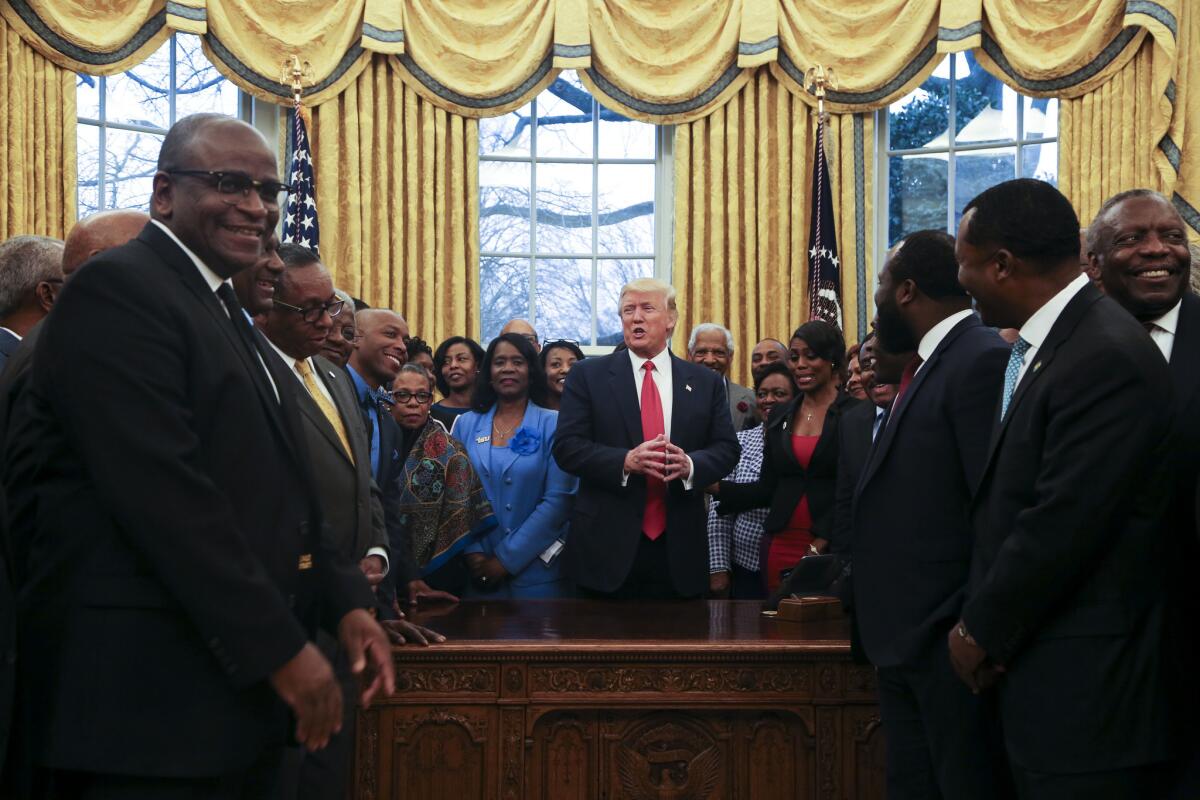White House names former NFL player to lead initiative for historically black colleges

- Share via
Reporting from Washington — Amid criticism that it hasn’t lived up to its commitment to historically black colleges, the Trump administration has named Johnathan M. Holifield, a former NFL player, author and entrepreneur, to lead a White House initiative on the issue.
Advocates applauded the appointment and said they look forward to working with Holifield, who played for one season with the Cincinnati Bengals, in 1989. But some are still skeptical and called for more substantive changes, particularly a reversal of proposed budget cuts and a greater commitment to Title III of the Higher Education Act, which helps institutions of higher education support low-income students.
Holifield’s appointment was announced Monday at the annual White House conference for presidents and stakeholders at historically black colleges and universities, or HBCUs. Some attendees said they hoped the event would be a first step to more cooperation with the administration.
“They [the administration] articulated their commitment to the institutions so I’m going to take them at their word, but we’ve got to move beyond sort of general statements,” said Michael Lomax, president of the United Negro College Fund, one of the groups that originally called for the postponement of the conference until the Trump administration followed through on promises from earlier meetings.
Trump has still not appointed any members to the President’s Board of Advisors on HBCUs.
At the conference, the White House set up two suggestion boxes asking leaders to tell them what they saw as the No. 1 issue facing HBCUs and what they needed from the federal government to improve their institutions. The daylong event consisted of panels including how to improve ways of measuring student outcomes and how to collaborate with the technology sector.
President-elect for Alabama State University Quinton T. Ross said the conference “set the stage for how we should proceed” to work with the Trump administration and make sure his school and students were taking full advantage of federal programs.
“It was eye-opening to me to know those resources were out there,” he said. “It was welcome knowledge…gives me a lot to take back.”
Holifield, who did not attend a historically black college, told student leaders and administrators at the conference that he would use his competitive spirit to focus on growing mostly black institutions and amplifying their impact.
“There is no path to sustained job creation, shared prosperity and enduring national competitiveness without the current and increased contributions of historically black colleges and universities,” he said. “I think we are in a unique moment where we can build on the tremendous legacy of leadership in this office.”
In her opening remarks at the conference, Secretary of Education Betsy DeVos said “elements of bigoted beliefs” have grown louder in recent months and urged administrators and student leaders to take this as a call to action.
“Together we must confront problems head on,” she said. “You can all provide important leadership. You can incubate and encourage voices that will help repair our present political climate.”
DeVos has previously been attacked for claiming that historically black schools were early advocates for school choice — one of her top priorities. Critics note that black schools were created because they were the only option for African American students at the time.
More to Read
Get the L.A. Times Politics newsletter
Deeply reported insights into legislation, politics and policy from Sacramento, Washington and beyond. In your inbox twice per week.
You may occasionally receive promotional content from the Los Angeles Times.










